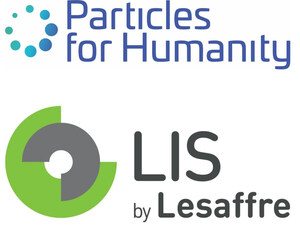Particles for Humanity Secures $5 Million for Vaccine Delivery Technology
Single injection vaccines could increase access and reduce burden on healthcare systems globally
CAMBRIDGE, Mass., Nov. 18, 2020 /PRNewswire/ -- Particles for Humanity, a biotechnology company transforming early-stage technologies into products for people in low-resource settings, has received a $5 million grant from the Bill & Melinda Gates Foundation. The funding will be used to evaluate a Single Injection (SI) vaccine delivery technology that delivers all the doses required for full immunization in one injection. The technology, published in Science, was invented at the Massachusetts Institute of Technology (MIT), by Drs. Robert Langer and Ana Jaklenec, and made available to the company under an option agreement with MIT.
Many vaccines require multiple doses to achieve immunity, which is one of the reasons why more than 19 million children are under-vaccinated, leading to 1.5 million vaccine-preventable deaths each year. Non-compliance to full vaccination regimens is a severe public health risk in an increasingly globalized world. Reducing the number of injections and clinic visits required to achieve immunity could lower barriers to seeking life-saving health interventions.
The SI technology is a platform technology from which many potential products can be developed. It has the potential to improve numerous licensed vaccines against diseases such as Human Papilloma Virus (HPV), Hepatitis B, rabies, polio, malaria, and shingles. This platform technology could also play an essential role in developing novel vaccines, that are likely to require multiple injections, for diseases such as HIV and COVID-19. The World Health Organization (WHO) estimates that 38 million people were living with HIV in 2019, and 50 million people have been infected by COVID-19 in 2020 so far.
"This pandemic highlights how critical vaccines are to protecting our global community. Multiple injections create a barrier to each person's ability to achieve full immunization, as well as a burden on the health system to manufacture, package, ship, store, and administer multiple doses. These problems can become acute during a pandemic when billions of people must be vaccinated quickly," says Particles for Humanity's CEO and co-founder, Sherri C. Oberg. "This technology is an opportunity to improve access to life-saving vaccines for individuals while minimizing the burden on the health care system."
"The SI platform technology can release any number of doses – at anywhere from 2 to even over 10 different time points, which could be important for today's and tomorrow's vaccines that require multiple injections to achieve and sustain the desired antibody titres." says Dr. Robert S. Langer, ScD, the David H. Koch Institute Professor at MIT.
Particles for Humanity will use the funding to demonstrate efficacy in animals using rabies as a model vaccine. The company's option agreement with MIT provides for evaluation of the SI technology and the option to negotiate for an exclusive global license to a wide variety of vaccines for infectious diseases, as well as a non-exclusive global license to vaccines for SARS-CoV-2 that causes COVID-19.
Particles for Humanity is developing a portfolio of products for improving vaccines and reducing malnutrition, with $14 million in cumulative funding from the Bill & Melinda Gates Foundation. Its rigorous product development process is based on end-user input and is focused on financially sustainable product opportunities. For more information, visit the company's website www.particlesfh.com.
For media inquiries, please contact: Zoe Thorsland, [email protected]
SOURCE Particles for Humanity

Related Links
WANT YOUR COMPANY'S NEWS FEATURED ON PRNEWSWIRE.COM?
Newsrooms &
Influencers
Digital Media
Outlets
Journalists
Opted In





Share this article